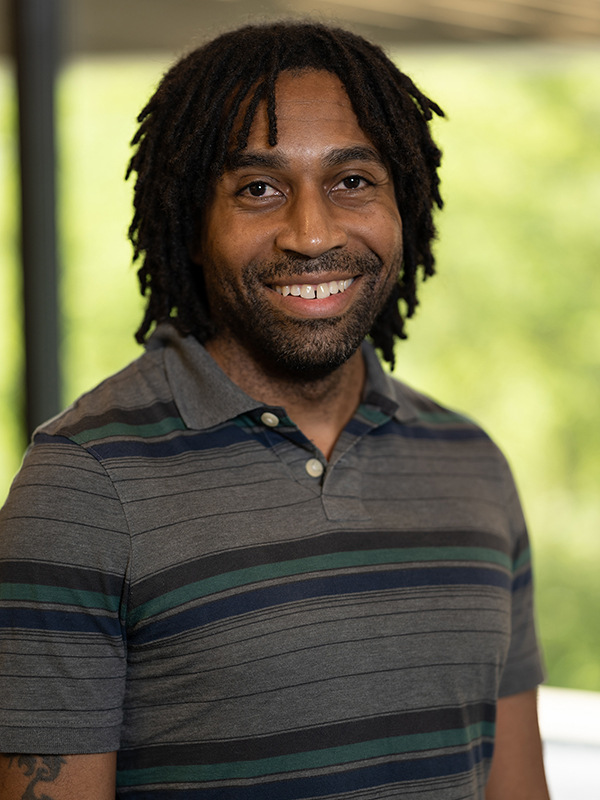Sociology and Anthropology
- Degree Type Bachelor of Arts
- Department Sociology and Anthropology
- Academic Division The College
- Offerings Major
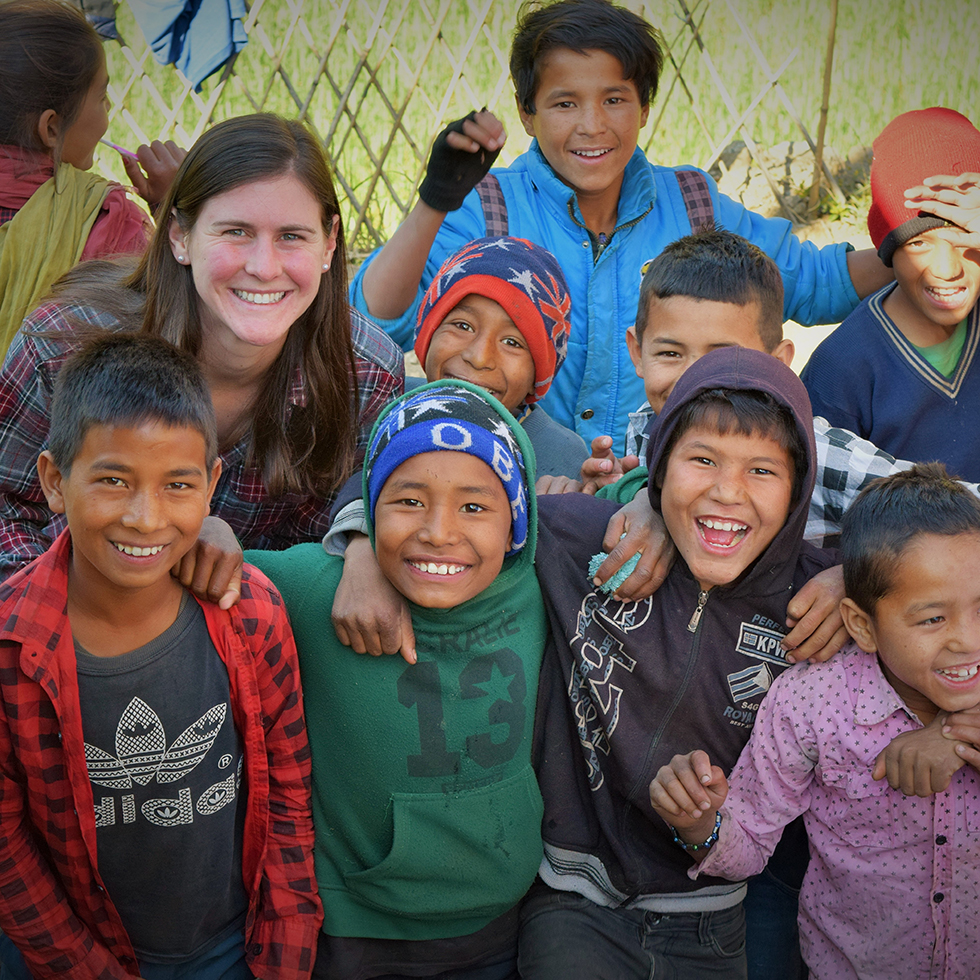

Sociology and Anthropology students are curious about how society and culture work and care deeply about solving social problems to make the world better.
Sociology and Anthropology
W&L offers one major with a concentration in either anthropology or sociology and an interdisciplinary minor in archaeology.
Our courses cover the following themes: archaeology and historical social science; gender, sexuality and human development; global cultures; health and society; identity and inequality; and politics, economics and culture.
Our classes feature a free-form style of learning where students apply readings to real-life situations and explore their own topics of interest. When working with peoples and cultures different from their own, students learn how to see the world from other perspectives. Students engage with theoretical perspectives and practical skills that are applicable to their lives. This mixture of topical and practical training prepares our graduates for entering a variety of graduate schools and careers.
Typically, students choose research methodologies that most match their interests, work closely with professors in the classroom and through independent research projects, and push the boundaries of their knowledge through study, travel and community engagement. Students have conducted research in places such as Appalachia, New York City, Western Europe, India, French Polynesia, Nepal, South Africa, Madagascar, Romania and Peru.
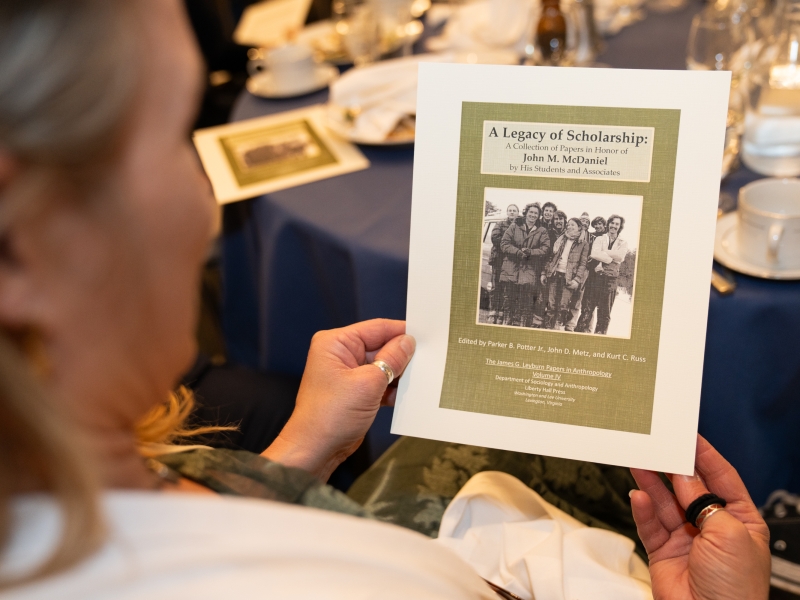
Students, faculty and alumni gathered April 12-13 to recognize the archaeological evolution of W&L’s back campus.
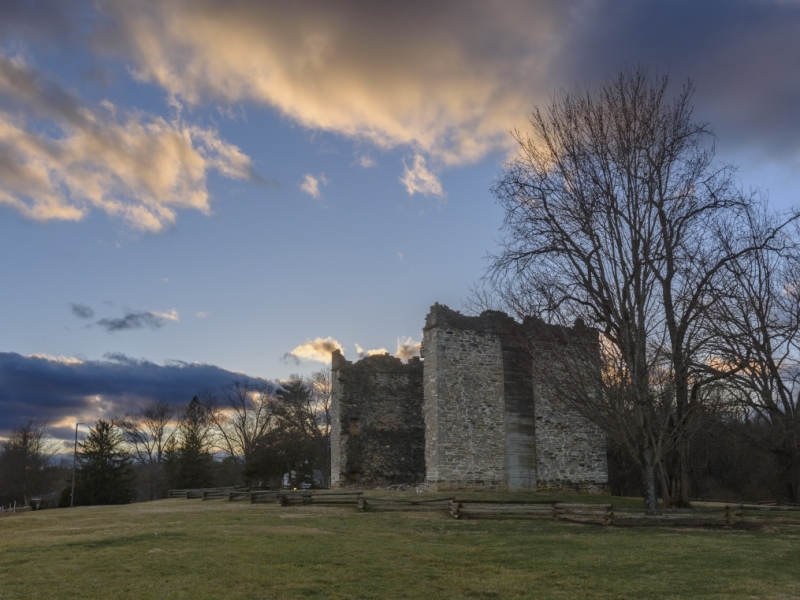
W&L Students to Host Archaeological Commemorative Event
The April 6 gathering marks the restoration of “The Foundation” on the university’s campus, originally part of the historic Liberty Hall Academy property.
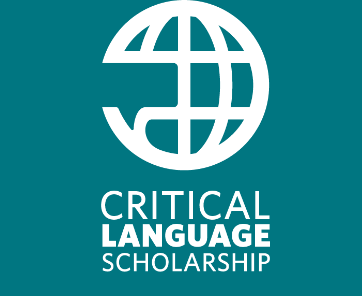
Record Number of W&L Students Awarded Critical Language Scholarship
The Critical Language Scholarship Program funds a summer of overseas language and cultural immersion.
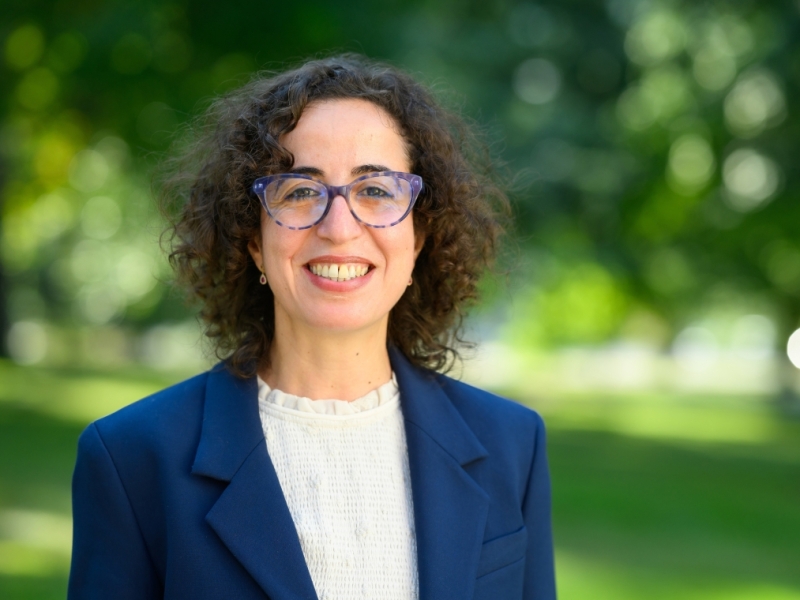
Anthropology Professor Publishes Essay in Online Publication
Hafsa Oubou’s essay “Churches Can, Mosques Can’t” appears in the January edition of Canopy Forum.
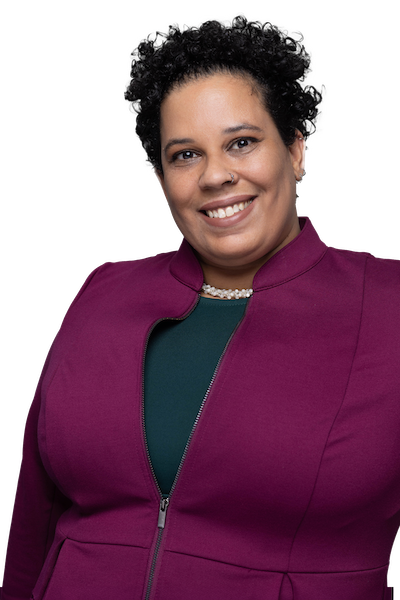
Alicia Simmons to Deliver Lecture on Polling and the 2024 Election
The professor and pollster will discuss applied sociology methods in her March 19 talk.
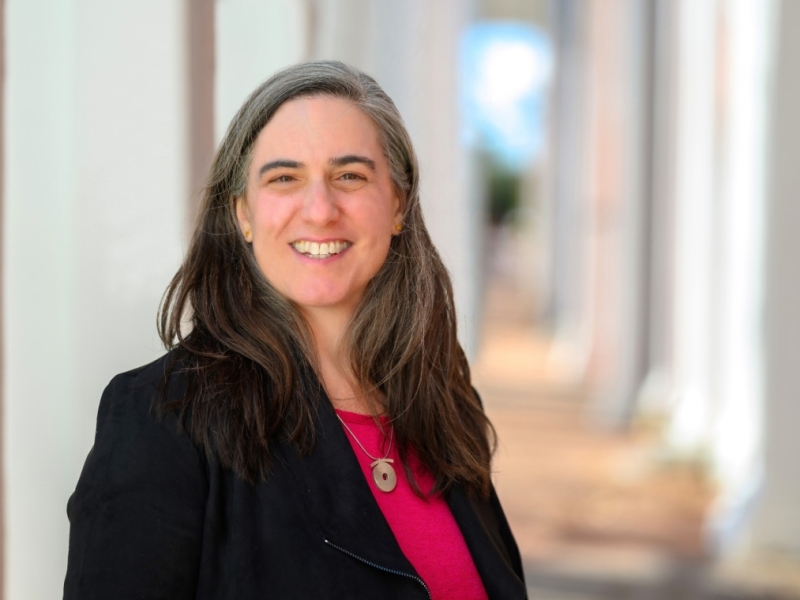
Goluboff Announced as Interim Executive Director of the Shepherd Higher Education Consortium
The professor of cultural anthropology will serve a dual role leading Community-Based Learning and the SHECP Consortium.
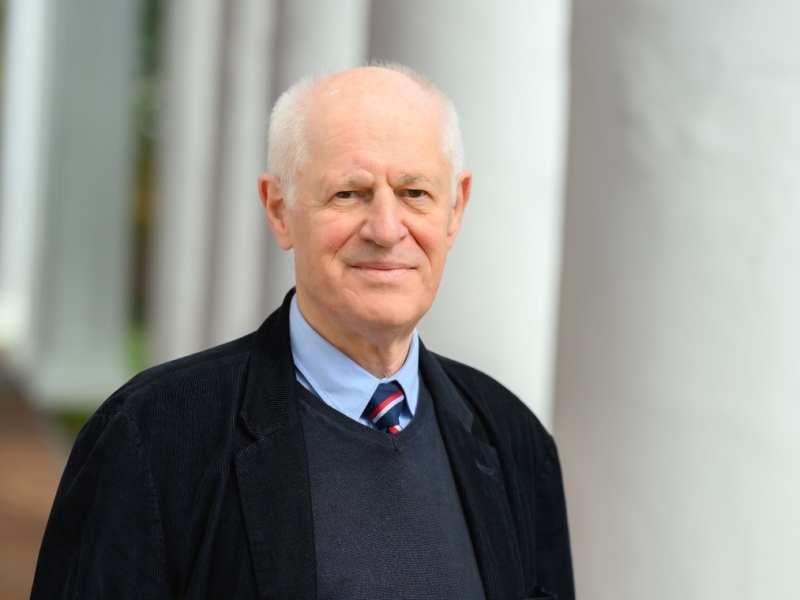
W&L Sociology Professor Publishes New Book
Krzysztof Jasiewicz authored “Roads to and from Democracy” from a collection of papers written over the course of 40 years.
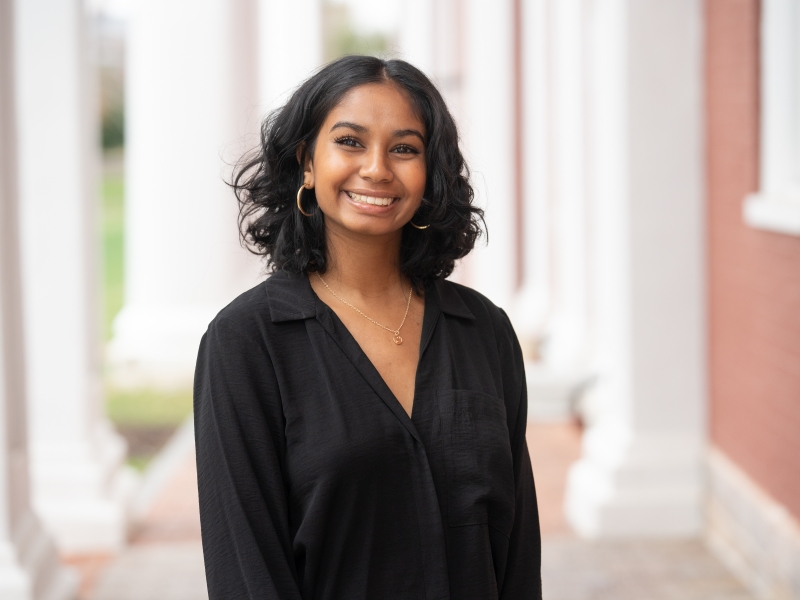
W&L’s Alina de Zoysa ’25 Awarded the Obama-Chesky Scholarship for Public Service
De Zoysa is the university’s first recipient of the two-year scholarship for juniors interested in a public service career.
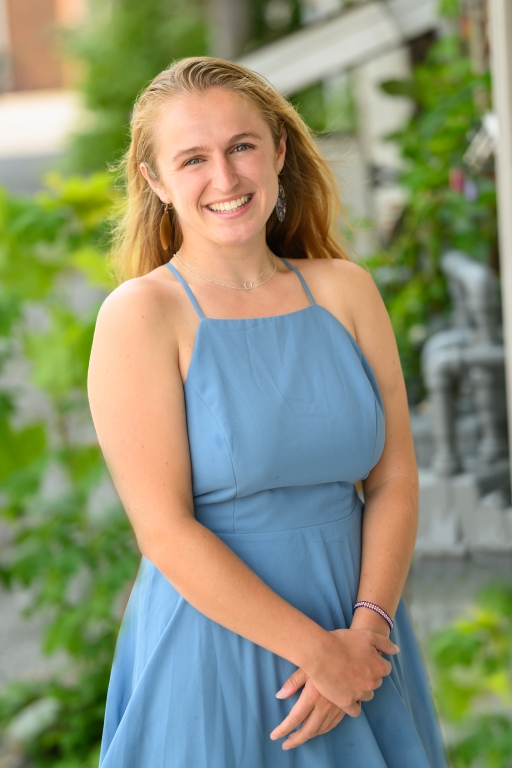
W&L Outcomes: Allie Stankewich ’23
Allie Stankewich ’23 will spend the summer in Tanzania before pursuing a Fulbright English Teaching Assistantship in Uganda.
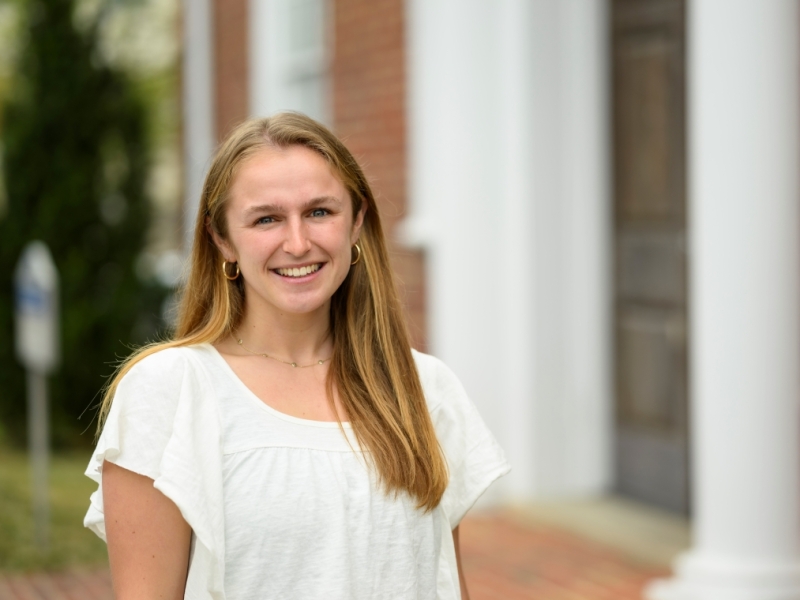
W&L’s Allie Stankewich ’23 Earns Fulbright to Uganda
Stankewich has been awarded a Fulbright English Teaching Assistantship to teach English in Uganda.
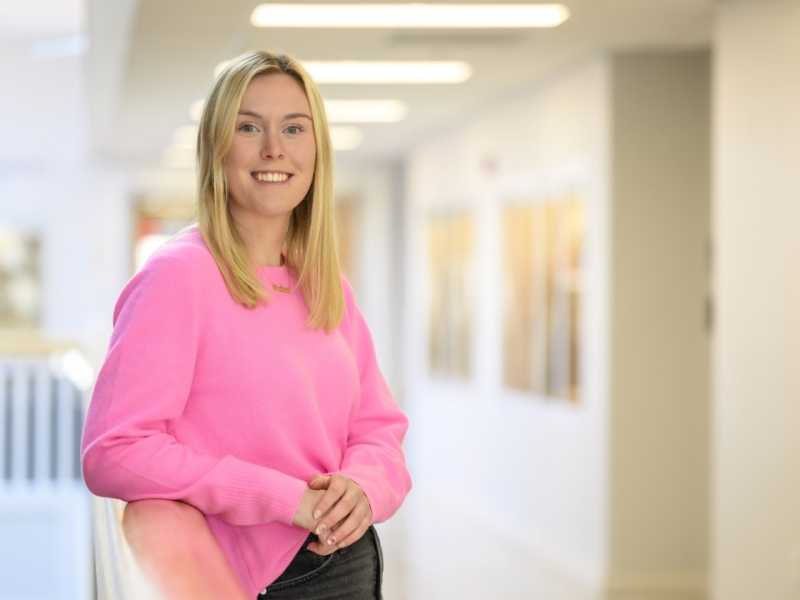
Graham appreciates how W&L empowers students to follow their passions.
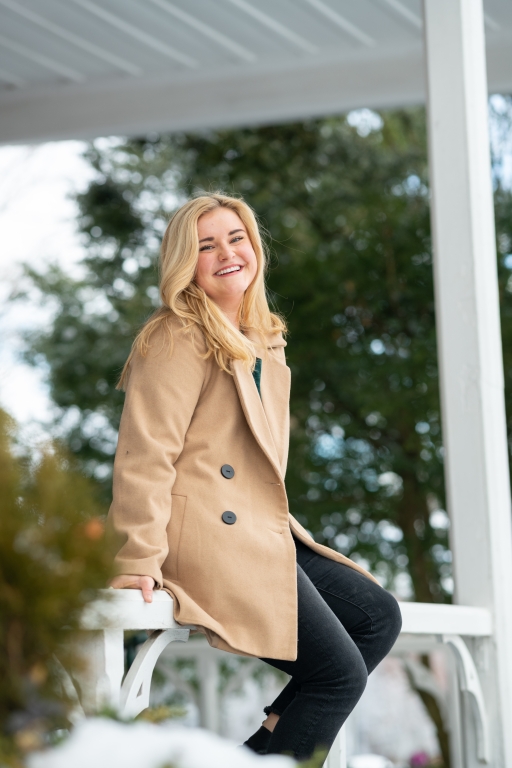
W&L Alumna Annie Talton ’21 Selected for Fulbright to Hungary
Talton has been awarded a Fulbright English Teaching Assistantship to teach English to the Roma student population in Hungary.
Sample Courses
What classes will you take?
SOAN 278
Health and Inequality: An Introduction to Medical Sociology
This course introduces sociological perspectives of health and illness. Students examine topics such as social organization of medicine; the social construction of illness; class, race and gender inequalities in health; and health care reform. Some of the questions we address: How is the medical profession changing? What are the pros and cons of market-driven medicine? Does class have an enduring impact on health outcomes? Is it true that we are what our friends’ eat? Can unconscious racial bias affect the quality of care for people of different ethnicities? What pitfalls have affected the way evidence-based medicine has been carried out?
SOAN 266
Neighborhoods and Inequality
This course examines the ways in which residential context relates to social and economic inequalities. Drawing on empirical literature from sociology and related fields, we consider both (a) how residential contexts may shape individuals’ opportunities and (b) the factors that may shape the persistence or change of concentrated advantage and disadvantage across those residential settings. Half of the course is a traditional seminar and half is a data analysis lab in which we learn tools of spatial data analysis and then apply them in individual student projects on contemporary cities.
SOAN 210
Field Methods in Archaeology
Students study the cultural and natural processes that lead to the patterns we see in the archaeological record. Using the scientific method and current theoretical motivations in anthropological archaeology, students learn how to develop a research design and to implement it with actual field excavation. We visit several field excavation sites in order to experience firsthand the range of archaeological field methods and research interests currently undertaken by leading archaeologists. Students use the archaeological data to test hypotheses about the sites under consideration and produce a report of their research.
SOAN 208
Qualitative Methods
Qualitative research methods are widely used to provide rich and detailed understandings of people’s experiences, interactions, narratives and practices within wider sociopolitical and economic contexts. Typical methods include oral histories, interviews, participant observation, and analysis of visual and textual culture. Students will engage in research aligned with community interests. Stages of the project will include topic identification, research design, ethical and legal considerations, choosing an appropriate methodology, data collection, analysis and write-up, and presentation and critique.
SOAN 228
Race & Ethnic Relations
An examination of why and how society creates and maintains racial and ethnic boundaries in the US. We discuss some of the crucial questions, which include: What conditions constitute a privileged group and an oppressed group? Why and how do racial/ethnic minority groups, the poor and women experience discrimination, oppression and exclusion in social life? Is there any racial discrimination against privileged racial/ethnic groups? How can ordinary people, policymakers and social scientists contribute to improving race and ethnic relations among different social groups in the U.S.?
SOAN 240
Food, Culture & Society
This course explores connections among food, culture and society. Food has been an essential way that individuals and societies define themselves, especially now in our ever globalizing world, as cultural anthropology continues to be a central discipline guiding this field of study. Students review some of the classic symbolic and structural analyses of gastro-politics. We explore relationships between fast-food/globalized taste vs. the Slow Food Movement/localized taste, and delve into socioeconomic and political practices behind the production and consumption of coffee, milk products and alcoholic beverages. Students investigate relationships among cooking/eating and race, gender and sexuality, and discuss community food justice. Opportunities to experience the Rockbridge area food scene are integrated into the syllabus.
Meet the Faculty
At W&L, students enjoy small classes and close relationships with professors who educate and nurture.
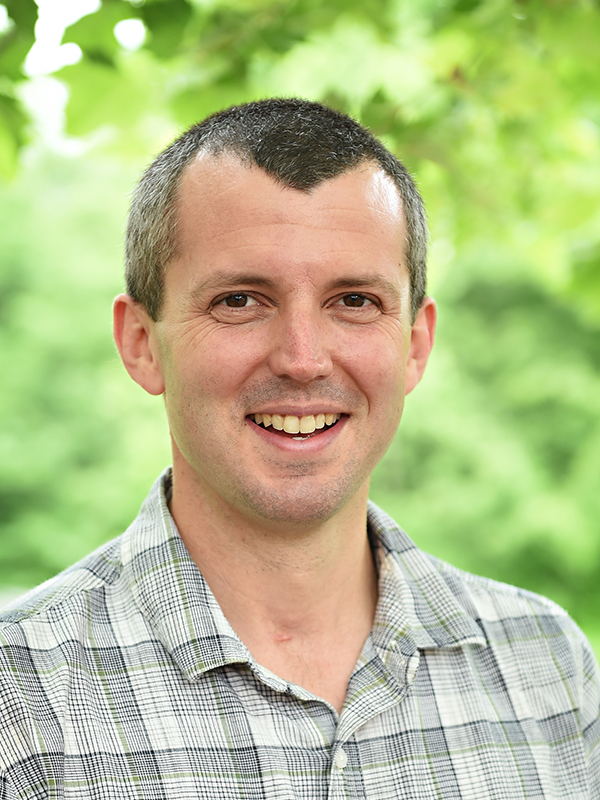

Jonathan Eastwood
Department Head, Sociology and Anthropology; Professor of Sociology
Professor Eastwood is a social theorist who also has a strong interest in quantitative methods. He teaches seminars on classical and contemporary theory as well as a series of courses that train students how to use quantitative and computational tools to answer sociological questions.
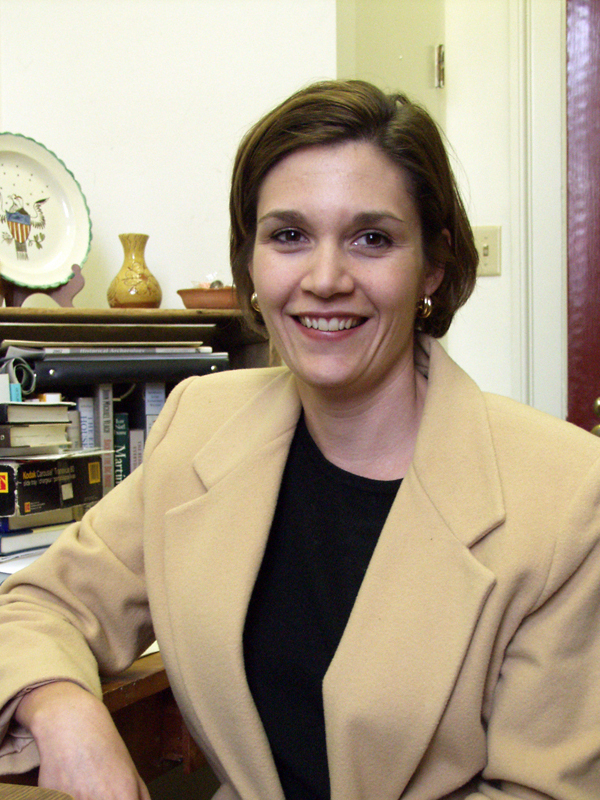

Alison Bell
Professor of Anthropology
- P: 540-458-8638
- E: bella@wlu.edu
Bell teaches courses on the anthropology of American history. Her research interests include historical archaeology, material culture, social stratification, and the 18th and 19th century in the eastern United States.
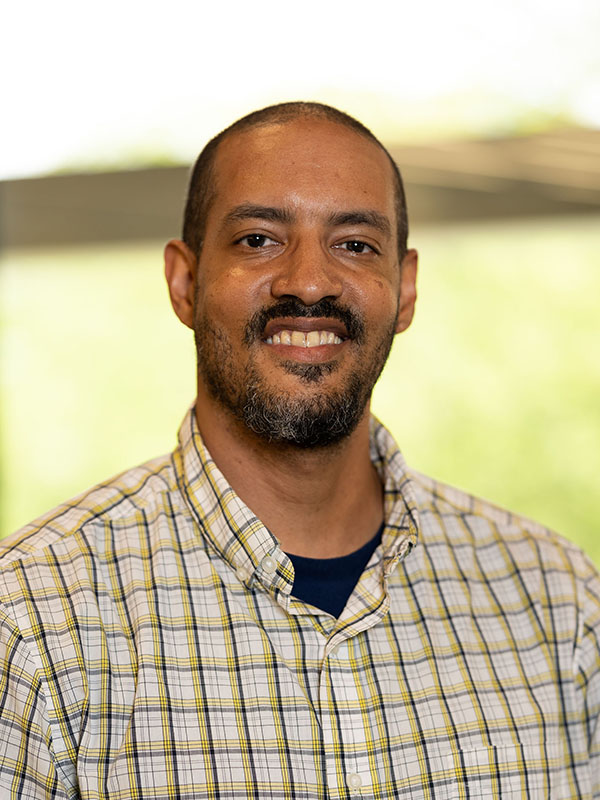

John Cataldi
Visiting Assistant Professor of Sociology and Anthropology
John F. Cataldi is a retired FBI Assistant Special Agent in Charge from the Kansas City office. He has served in the US Navy (Reserve) and the US Army (Regular Army and Reserve). His government and military careers have taken him to conflict scenarios throughout the world.
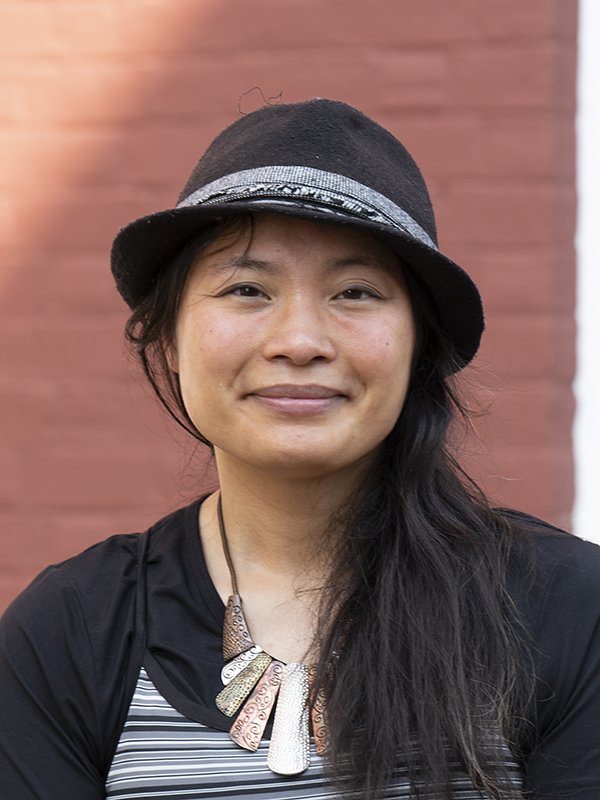

Lynn G. Chin
Associate Professor of Sociology
- P: 540-458-8791
- E: chinl@wlu.edu
Chin teaches courses on power and status, health and inequality, and other unique topics in sociology. Her research focuses on group processes and social psychology.
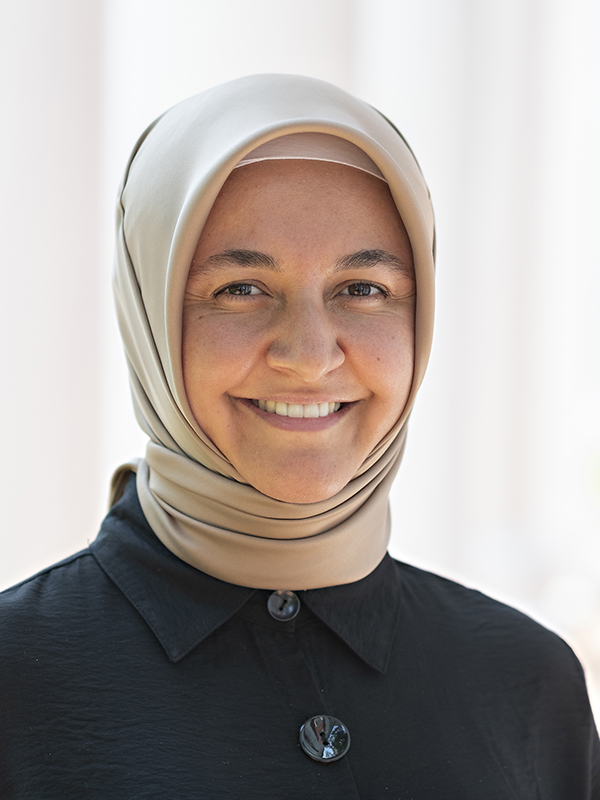

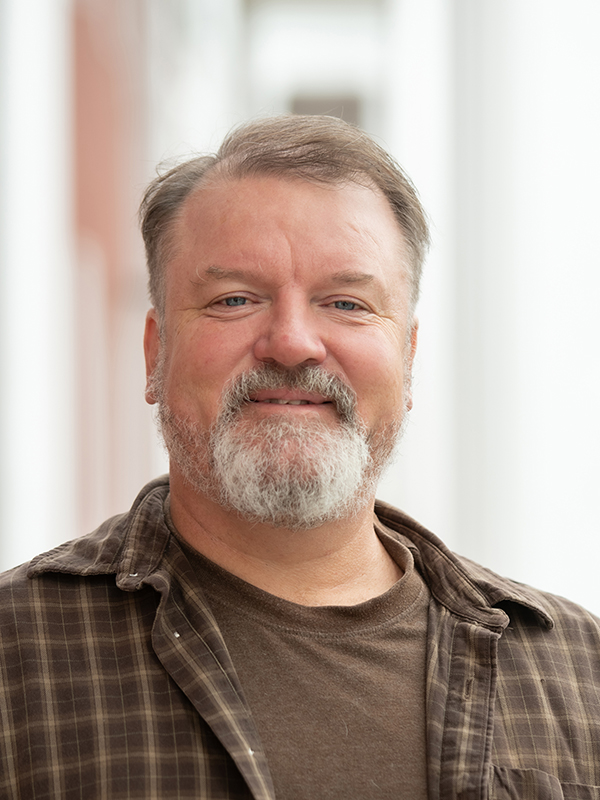

Donald Gaylord
Research Archaeologist and Instructor of Anthropology
- P: 540-458-8378
- E: gaylordd@wlu.edu
Gaylord teaches courses in archaeology including Field Methods in Archaeology and Discovering W&L’s Origins Using Historical Archaeology. He researches the anthropological analysis of property ownership and land use.
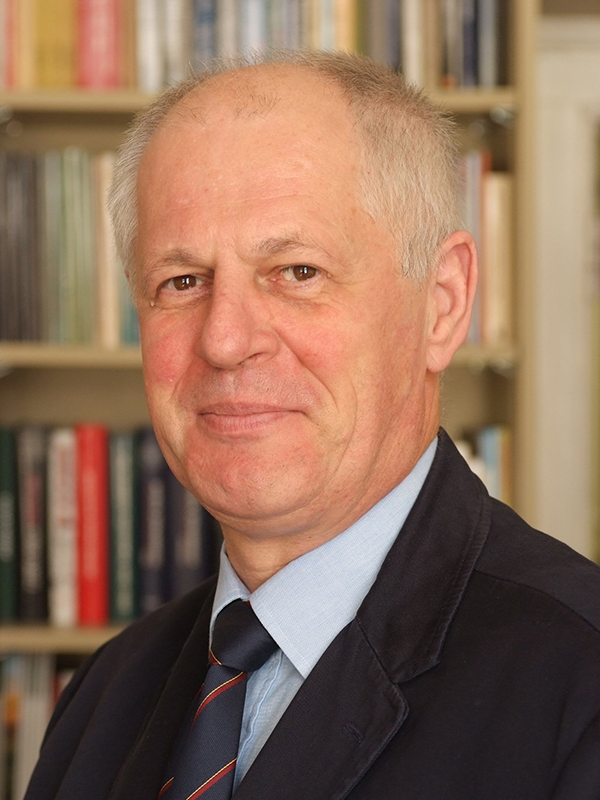

Krzysztof Jasiewicz
William P. Ames Jr. Professor
Jasiewicz, a native of Poland, teaches courses in research methods, European politics and society, post-communist transitions, and peoples of Central Europe. He is the editor of the journal East European Politics and Societies.
Sue Ann McCarty
Visiting Assistant Professor of Sociology and Anthropology
- P: 540-458-8775
- E: smccarty@wlu.edu
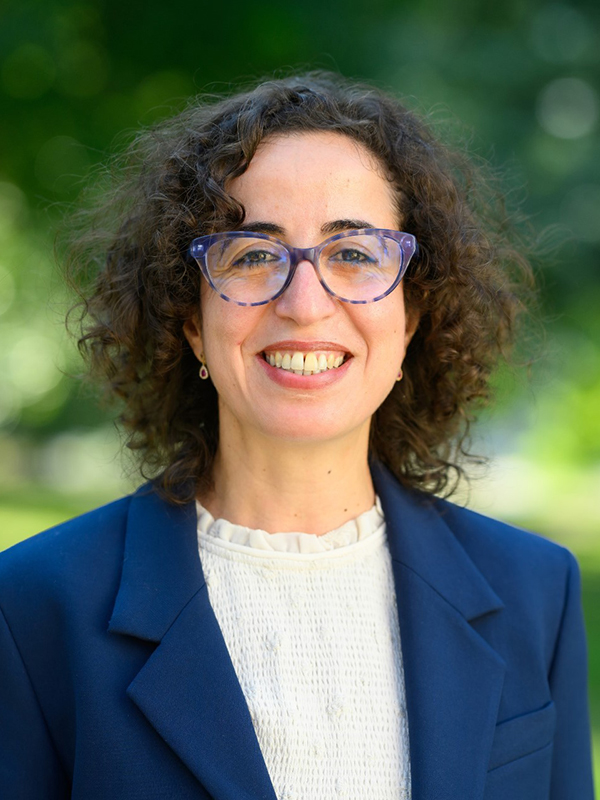

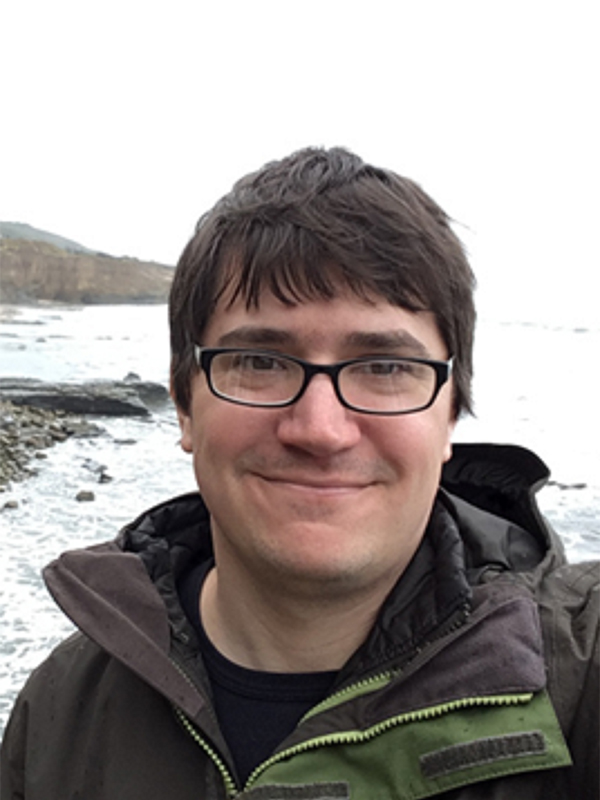

Marcos Perez
Assistant Professor of Sociology
- P: 540-458-8793
- E: mperez@wlu.edu
Perez teaches courses such as Revolutions and Revolutionaries and Poverty and Marginality in the Americas. His research interests include political sociology, urban studies, stratification and Latin American studies.
